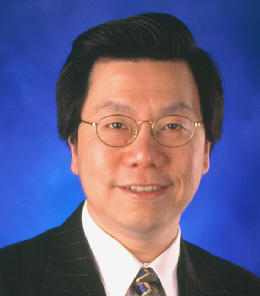In Google We Trust

I just read on a blog that I follow about Kai Fu Lee defecting from Microsoft to head up Google's research labs in China. Lee's formula for Google's success is
youth + freedom + transparency + new model + the general public’s benefit + belief in trust = The Miracle of Google.
This prescription would be a worthless bromide except for the inclusion of "belief in trust," which to me seems original and brilliant.
In an effort to find out why my mother thinks the way she thinks, I am reading a booster biography of George W. Bush titled Misunderestimated. I thought this would be as difficult as it would be for her to read, say, Living History by Hillary Clinton. Instead, I find Bill Sammon's book oddly compelling. I keep reaching for it instead of these other books I brought to Maine that are much more in keeping with my usual interests: Italo Calvino's Invisible Cities, Rohinton Mistry's Family Matters, the latest issue of AGNI, and Robert Aitken's The Morning Star. Maybe I am titillated by the sensation of wandering around the enemy camp in total freedom, watching George Bush say funny and endearing things to reporters on an exhausting hike at his ranch, seeing how terrifying liberals like myself look through the eyes of the other side. I'm messing with my own taboos by even reading this book. It's political pornography--seeing things I'm not supposed to see, namely that the world of Bush and his supporters (including my dear Mom) makes total sense when seen from the inside. It's scary and intellectually arousing.
It strikes me that trust, the key factor in Lee's Google success formula, is also central in understanding the dreary impasse of current American political life. If I trusted George Bush, his affirmations of freedom and making America safe would be totally acceptable, even inspiring. But what if I DID trust him? Well, then the world would become a lot more complicated. I'd have to think about specific choices facing the nation instead of simply finding out what "my" side is promoting out of its supposedly more virtuous, more honest, more trustworthy character. It's a lot easier to eliminate an entire spectrum of ideology--to demonize it, scorn it, and snicker at it. Weirdly, this locked-in ideological stance feels more sane than opening myself to the possibility that two such opposing views of the world could both contain elements of truth.
I heard a story on NPR yesterday about a war zone somewhere--I forget where, there are so many places in the world where people are killing each other over ideas and ideology. A weary but hopeful person in the radio report was describing progress toward peace but noted there were forces benefitting from the conflict, getting rich selling arms. Likewise, there are people getting rich fanning the ideological mistrust in this country--from Limbaugh to Al Franken, as well as high-paid political operatives in each party. Trust? If you were one of those guys, you'd stomp on it every time it raised its furry little head from the prairie.
I'd like to believe that trust wins in the end. Kai Fu Lee trusted his own heart enough to make a bold move in his life, returning to his own country as part of a company that he thinks has trustworthiness as a competitive advantage. I trusted my own mother enough to read a book that is arousing my mind to a new world. Somewhere out there, I can see an America that trusts itself again, a country made up of citizens who increasingly trust each other. It will also be driven by youth, freedom, new models and the public good. What will we call it? The Miracle of America.
